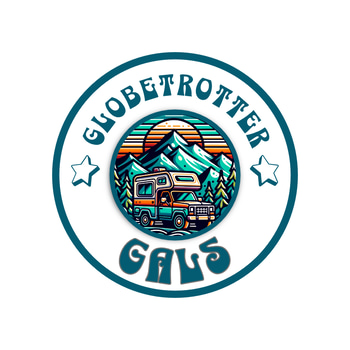Why Learning the Local Language Before Traveling is a Game-Changer (And How to Do It!)
Want to make your travels smoother, more fun, and more authentic? Learning the local language, even just the basics, can completely transform your experience. This guide covers why it’s essential and the best (and easiest) ways to learn before your trip, from language apps to music, movies, and real-life practice. Get ready to travel smarter and connect deeper!
TRAVEL TIPS & HACKS
3/21/20253 min read


Planning a trip abroad? Whether you're backpacking through Europe, exploring Asia, or soaking up the vibes in South America, one of the best things you can do before you go is learn the local language (or at least the basics). No, you don’t need to be fluent, but trust me, knowing a few key phrases can totally transform your travel experience.
So, why is learning a language before traveling so important? And how can you do it without spending years in a classroom? Let’s dive in!
Why Learning the Local Language Matters


1. It Makes Travel Way Easier
Picture this: You’re in a small town in Italy, craving a fresh plate of pasta. You walk into a cozy little trattoria, and... the menu is 100% in Italian. If you can’t read it or communicate with the waiter, you might end up ordering something totally unexpected (hopefully, it’s delicious). Learning some basic words and phrases helps you navigate menus, directions, and everyday interactions without stress.
2. Locals Appreciate the Effort
Even if your pronunciation is a little off, locals will love that you’re trying. It shows respect for their culture, and you’ll often get a warmer welcome. A simple “Bonjour!” in France or “Konnichiwa!” in Japan can go a long way in making connections. I can still remember how joyful the lady I was sitting next to on my flight to South Korea was when I told her, "I need to go to the bathroom." in Korean.
3. Avoid Tourist Traps & Get Better Deals
Speaking a bit of the local language can help you avoid overpriced tourist spots. You’ll feel more comfortable venturing into authentic markets, negotiating prices, and experiencing the country like a local.
4. It Keeps You Safer
If you ever find yourself lost, need medical help, or have an emergency, knowing how to ask for directions or explain what’s wrong is invaluable. Even just knowing how to say “help” or “I need assistance” in the local language can make a big difference.
5. Deeper, More Meaningful Experiences
The best travel moments often come from unexpected conversations. Whether it’s chatting with an old shopkeeper in Thailand or making friends at a hostel in Brazil, knowing even a little of the language opens the door to genuine connections.
How to Learn a Language Before Traveling (Without Losing Your Mind)


Okay, so you’re convinced; it’s worth learning the language. But how do you do it without spending years memorizing verb conjugations? Here are some easy, fun, and effective ways to learn before your trip.
1. Use Language Learning Apps
Apps like Duolingo, Babbel, and Rosetta Stone make learning fun and bite-sized. Even 10–15 minutes a day can help you pick up key words and phrases quickly.
2. Watch Movies & Listen to Music in the Language
Put on some Spanish reggaeton, French pop, or Italian opera while you go about your day. Watching movies or TV shows with subtitles (like K-Dramas for Korean or Spanish telenovelas) helps your brain get used to the sounds and structure of the language.
3. Practice Speaking with Native Speakers
Apps like HelloTalk and Tandem connect you with native speakers who want to learn your language in exchange for helping you learn theirs. It’s like having an international pen pal, but with voice messages!
4. Learn Key Phrases First
Forget grammar rules for now. Start with the basics:
Greetings (Hello, Goodbye, Thank you)
Ordering food (I’d like… How much is this?)
Directions (Where is the bathroom? Where is the train station?)
Emergency phrases (I need help, Call a doctor, I’m lost)
5. Label Everyday Items in Your Home
If you’re learning French, stick a note on your fridge that says “Le réfrigérateur.". If you’re learning Japanese, label your door “ドア (Doa)”. Seeing these words daily reinforces them in your memory.
6. Change Your Phone Language
Set your phone, GPS, or social media apps to the language you’re learning. It forces you to engage with it daily in a natural way.
7. Take a Local Class or Find a Tutor
If you have time before your trip, sign up for a beginner course at a local language school or use platforms like iTalki, Preply, or Rocket Languages to get lessons from native speakers online.
Final Thoughts: You Don’t Need to Be Fluent—Just Try!
The goal isn’t perfection—it’s connection. Even if you mispronounce words or forget a phrase, making the effort will enrich your travel experience in ways you can’t imagine. So, pick a language, start learning today, and get ready for an unforgettable adventure!
What language are you planning to learn for your next trip?
Make the first step.
"To travel is to take a journey into yourself."
Contacts
Join my newsletter!
infoglobetrottergals@gmail.com
© 2025. All rights reserved.
Disclosure: Some links provided in this blog could be affiliate links, of which I will be paid a commission if you use these links to make a purchase.
